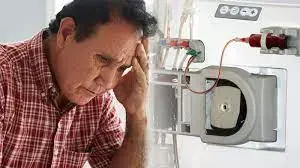- Home
- Medical news & Guidelines
- Anesthesiology
- Cardiology and CTVS
- Critical Care
- Dentistry
- Dermatology
- Diabetes and Endocrinology
- ENT
- Gastroenterology
- Medicine
- Nephrology
- Neurology
- Obstretics-Gynaecology
- Oncology
- Ophthalmology
- Orthopaedics
- Pediatrics-Neonatology
- Psychiatry
- Pulmonology
- Radiology
- Surgery
- Urology
- Laboratory Medicine
- Diet
- Nursing
- Paramedical
- Physiotherapy
- Health news
- Fact Check
- Bone Health Fact Check
- Brain Health Fact Check
- Cancer Related Fact Check
- Child Care Fact Check
- Dental and oral health fact check
- Diabetes and metabolic health fact check
- Diet and Nutrition Fact Check
- Eye and ENT Care Fact Check
- Fitness fact check
- Gut health fact check
- Heart health fact check
- Kidney health fact check
- Medical education fact check
- Men's health fact check
- Respiratory fact check
- Skin and hair care fact check
- Vaccine and Immunization fact check
- Women's health fact check
- AYUSH
- State News
- Andaman and Nicobar Islands
- Andhra Pradesh
- Arunachal Pradesh
- Assam
- Bihar
- Chandigarh
- Chattisgarh
- Dadra and Nagar Haveli
- Daman and Diu
- Delhi
- Goa
- Gujarat
- Haryana
- Himachal Pradesh
- Jammu & Kashmir
- Jharkhand
- Karnataka
- Kerala
- Ladakh
- Lakshadweep
- Madhya Pradesh
- Maharashtra
- Manipur
- Meghalaya
- Mizoram
- Nagaland
- Odisha
- Puducherry
- Punjab
- Rajasthan
- Sikkim
- Tamil Nadu
- Telangana
- Tripura
- Uttar Pradesh
- Uttrakhand
- West Bengal
- Medical Education
- Industry
Depression and low-grade inflammation may increase all-cause mortality in peritoneal dialysis patients

Depression and low-grade inflammation may increase all-cause mortality in peritoneal dialysis patients suggests a new study published in the BMC Nephrology.
The relationship between depression and systemic inflammation as risk factors for mortality is not well understood and requires further investigation.
Patients undergoing continuous ambulatory peritoneal dialysis (CAPD) between July 01, 2015 to December 31, 2019, were analyzed and followed up until December 31, 2020. According to their status of depression (PHQ-9 score ≥ 5) and low-grade inflammation (hs-CRP level ≥ 3 mg/L), patients were divided into four groups (G1, without depression, nor inflammation; G2, with depression, without inflammation; G3, with inflammation, without depression; G4, with both depression and inflammation). We performed Kaplan–Meier and multivariable Cox proportional analyses of mortality for the combined influence of depression and systemic inflammation in this cohort.
Results
During the mean follow-up of 36.3 ± 14.8 months, 73 deaths were recorded in 358 participants. Compared with patients in group G1, patients in group G2 and G3 carried 137% {hazard ratio (HR): 2.37, 95% confidence interval (CI): 1.06—5.23, p = 0.035} and 140% (HR: 2.40, 95% CI: 1.01—5.69, p = 0.048) higher risk of mortality. Patients in group G4 (with both depression and inflammation) showed the highest risks of all-cause mortality with 276% higher mortality risk (HR: 3.76, 95% CI: 1.73—8.15, p = 0.001), respectively.
The combined of depression and inflammation is associated with all-cause mortality in peritoneal dialysis patients, suggesting a need for further study of depression and low-grade inflammation in PD patients and potential relationship between them.
Reference:
Zhang, Y., Chen, J., Tang, R. et al. Combined influence of depression and low-grade inflammation on mortality in peritoneal dialysis patients. BMC Nephrol 24, 241 (2023). https://doi.org/10.1186/s12882-023-03291-2
Keywords:
Depression, low-grade, inflammation, increase, all-cause, mortality, peritoneal, dialysis, patients, BMC Nephrology, Zhang, Y., Chen, J., Tang, R, Depression, Low-grade inflammation, Peritoneal dialysis, Mortality
Dr. Shravani Dali has completed her BDS from Pravara institute of medical sciences, loni. Following which she extensively worked in the healthcare sector for 2+ years. She has been actively involved in writing blogs in field of health and wellness. Currently she is pursuing her Masters of public health-health administration from Tata institute of social sciences. She can be contacted at editorial@medicaldialogues.in.
Dr Kamal Kant Kohli-MBBS, DTCD- a chest specialist with more than 30 years of practice and a flair for writing clinical articles, Dr Kamal Kant Kohli joined Medical Dialogues as a Chief Editor of Medical News. Besides writing articles, as an editor, he proofreads and verifies all the medical content published on Medical Dialogues including those coming from journals, studies,medical conferences,guidelines etc. Email: drkohli@medicaldialogues.in. Contact no. 011-43720751


